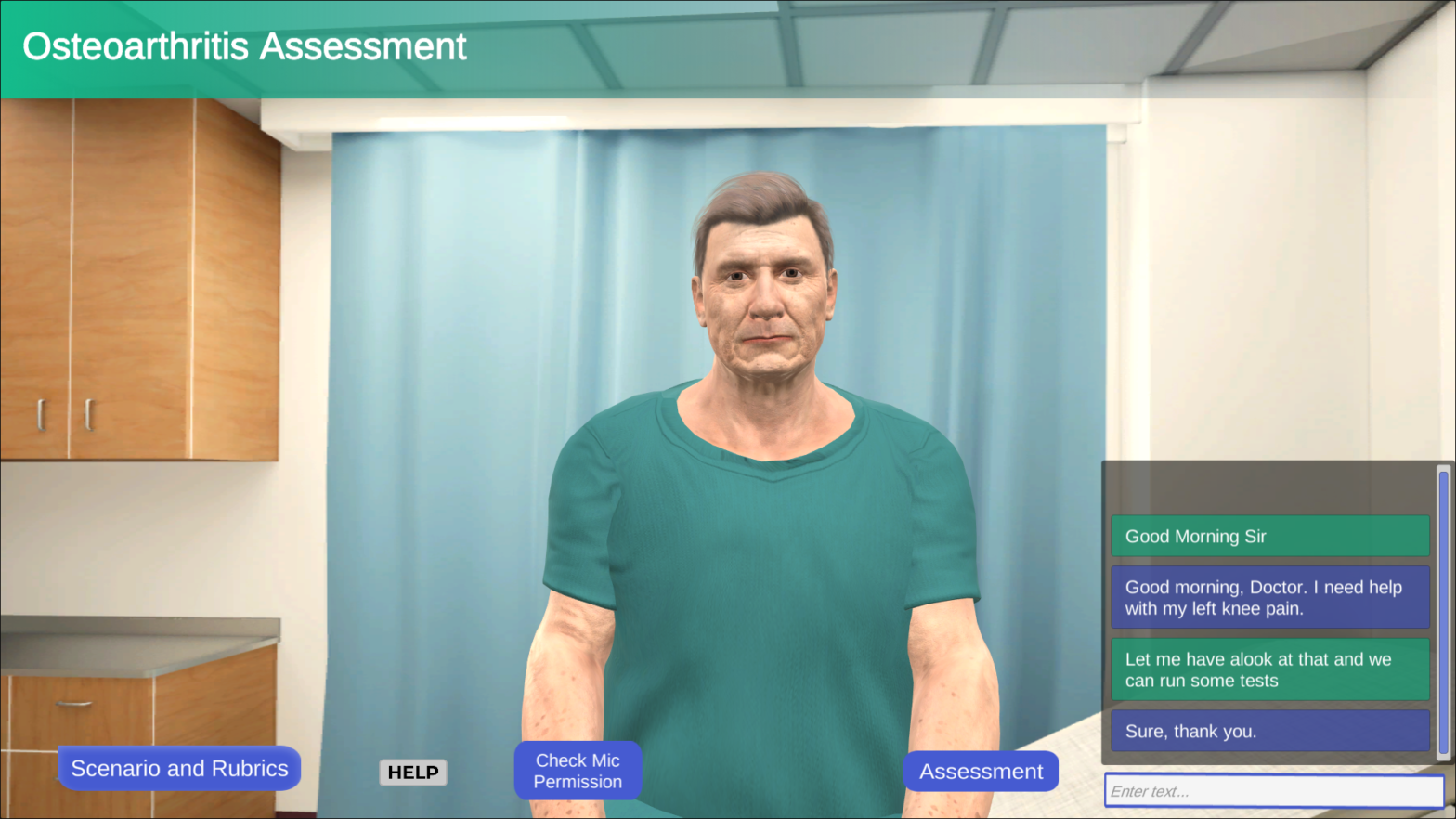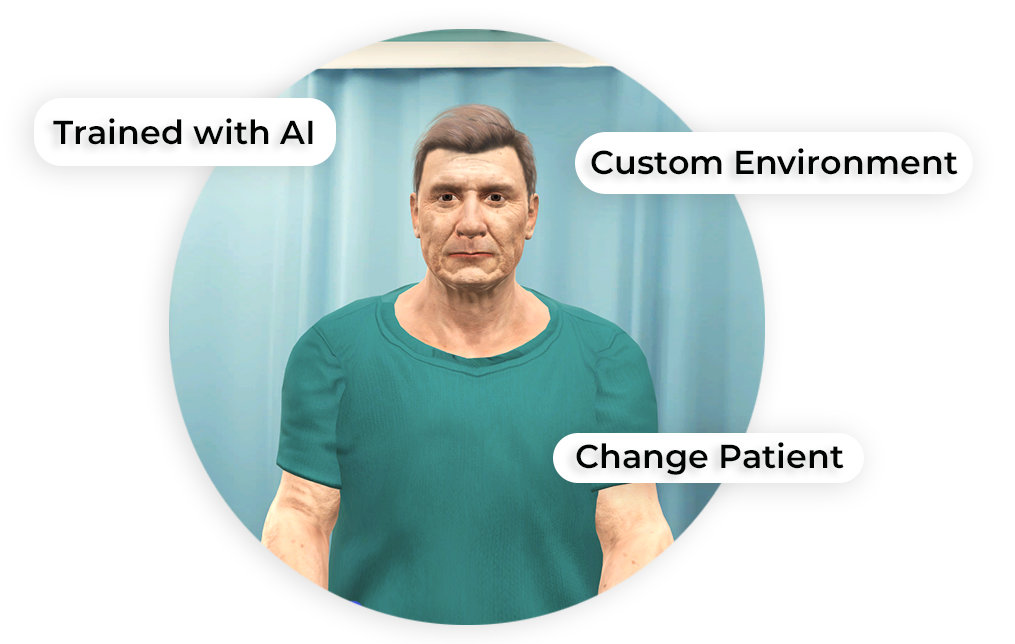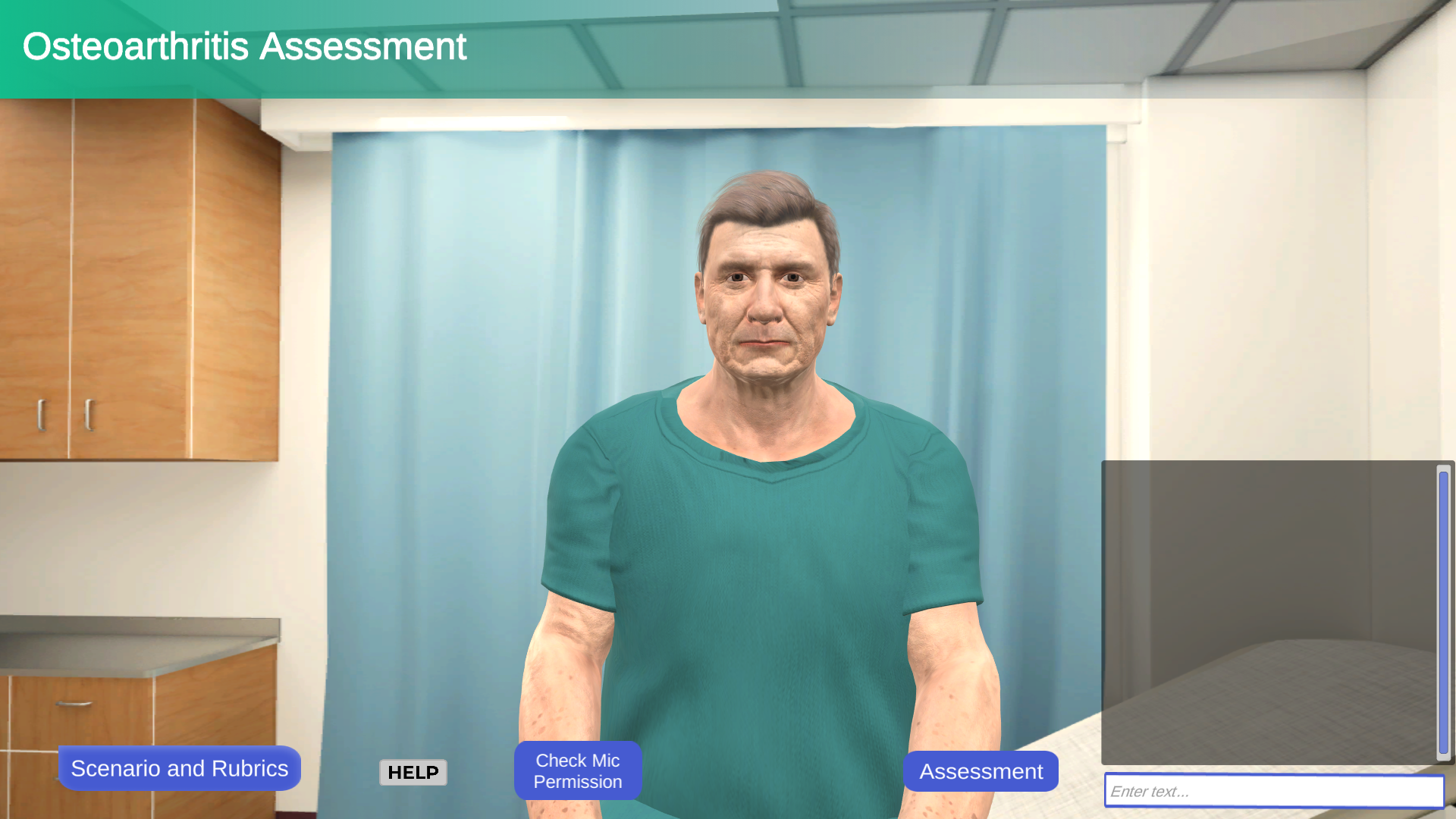Osteoarthritis Assessment
Available in VR and web browser
This AI-powered Osteoarthritis patient assessment tool is designed to help learners practice their patient assessment skills.
Employing end-to-end AI and technologies like large language model (LLM) and deep learning, these virtual ‘clients’ possess the ability to respond like real humans. Learners can conduct a completely organic conversation with the client, asking them about their symptoms and problems faced. Based on the client’s responses, a line of diagnosis can be established, and treatment plan formulated.
The MedVR Ed XR Platform provides trainers and instructors with the facility to review conversation logs and analyze learner performance based on customized rubrics. Based on the performance review, trainers will be able to provide precise and effective feedback.
- Apply clinical skills to get a better understanding of the patient’s symptoms
- Formulate diagnostic hypothesis of patient’s symptoms based on patient’s answers to assessment questions
- Evaluate obtained information to formulate differential diagnosis

- American College of Rheumatology/Arthritis Foundation. (2020). Osteoarthritis management: Updated guidelines from the American College of Rheumatology and Arthritis Foundation. Arthritis Care & Research, 72(2), 149-162.
Customize Your Case
Build your own AI-Humans patient.
MedVR Education is bringing to you a no-code authoring platform to create new patient cases and customized patient history. Put together your own cases by making selections from a wide range of customizing features.
- Create with web-based authoring tool
- Publish in VR, desktop, and mobile devices
- Train your virtual patient by yourself
- Select patient from a diverse background
- Choose preferred virtual environment
- Perform real-time testing
- Track and train new data

 AI Patient Assessment
AI Patient Assessment Natural Language Processing
Natural Language Processing
Case History

Osteoarthritis - Patient Assessment
Billy Crudup is 56-years-old and is seeking care for a left knee pain that flared up three days ago. He has never experienced anything like this before and does not remember having suffered any injury to his knee. It’s a dull and constant pain that gets worse on walking. A heating pad, rest and over-the-counter ibuprofen provides some relief.
Your task, as a healthcare practitioner, is to conduct an initial assessment of the patient’s symptoms and formulate a diagnostic hypothesis.

